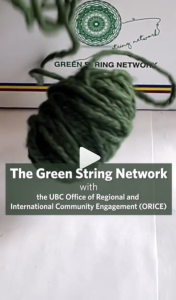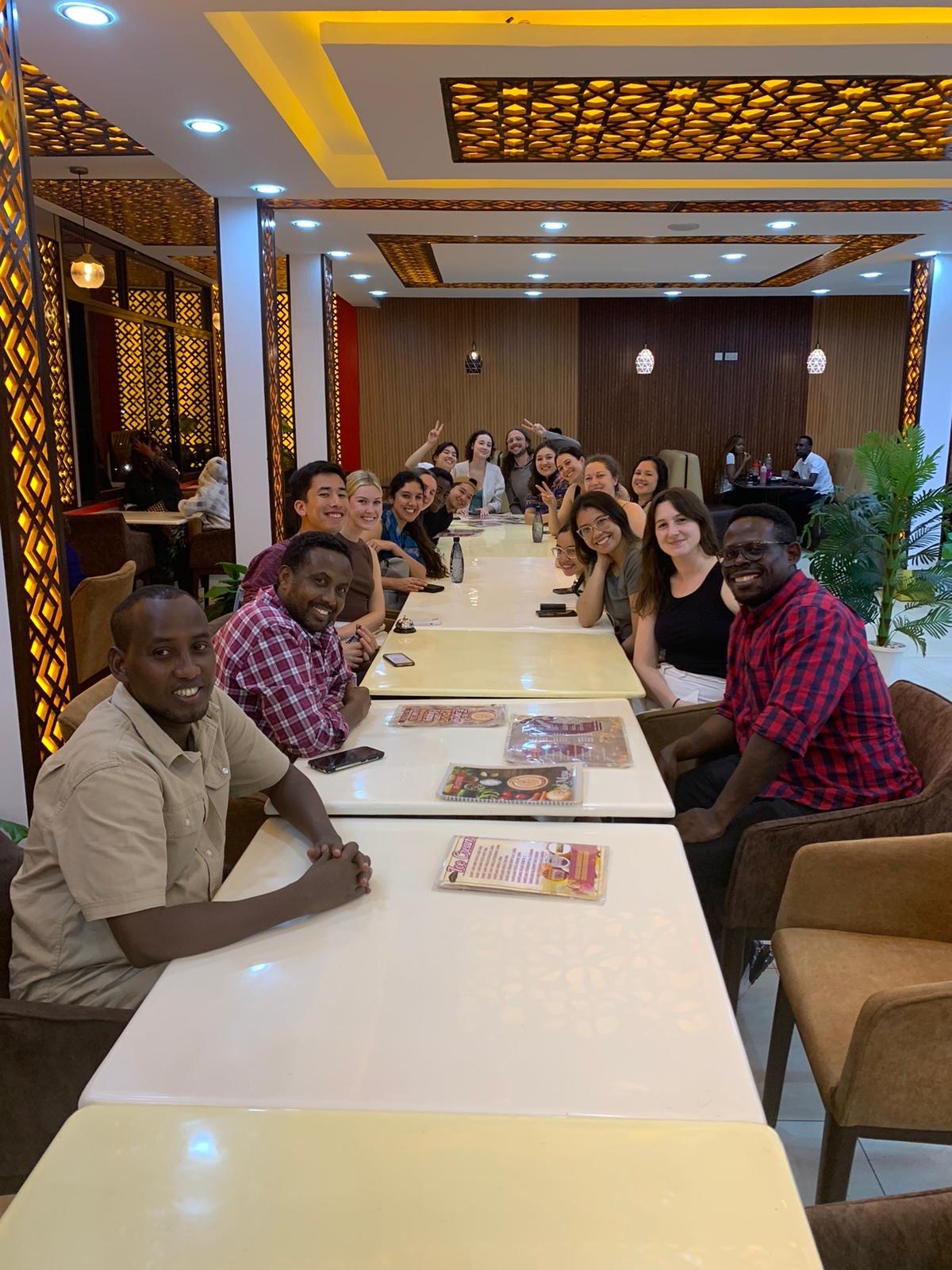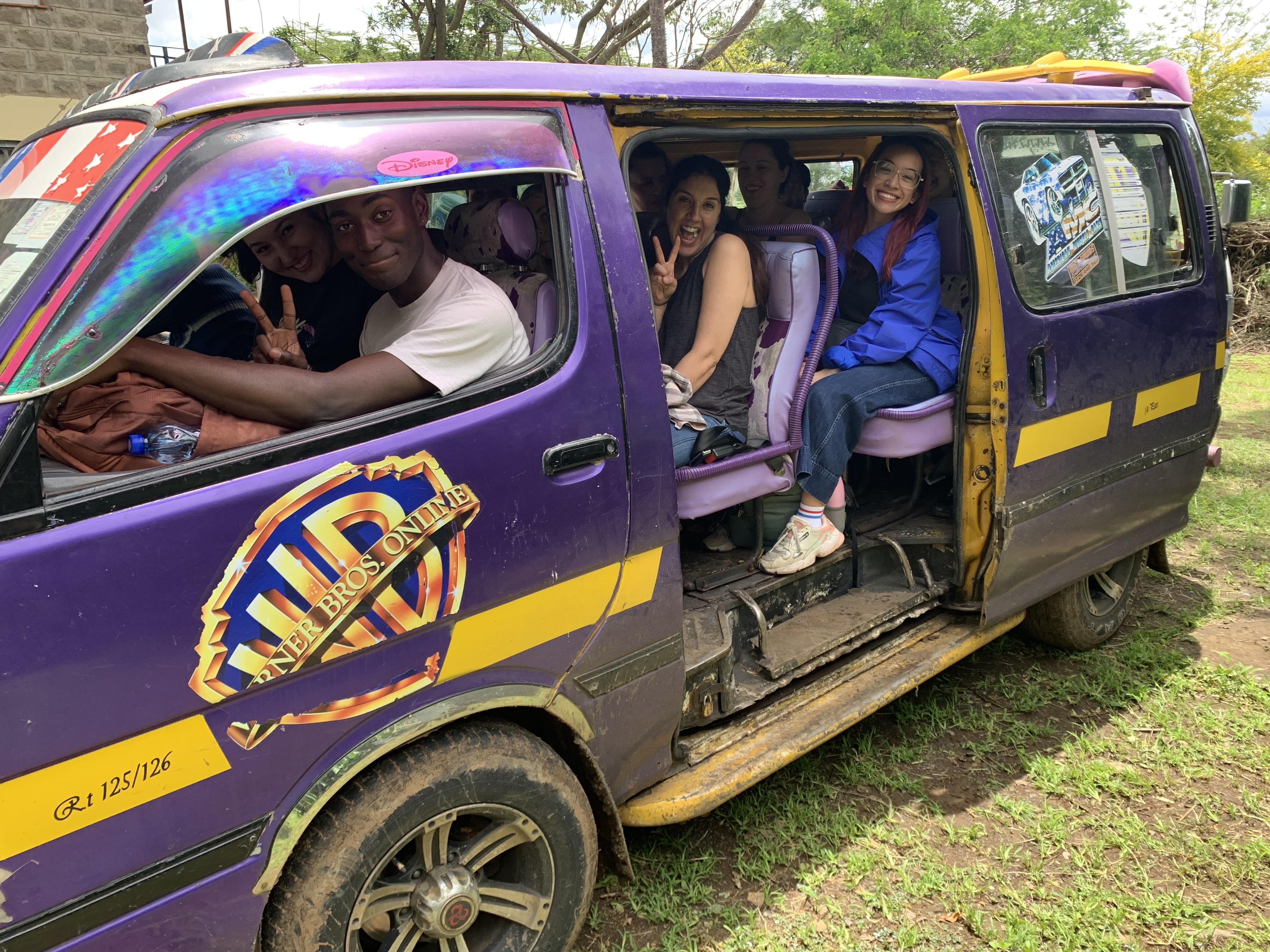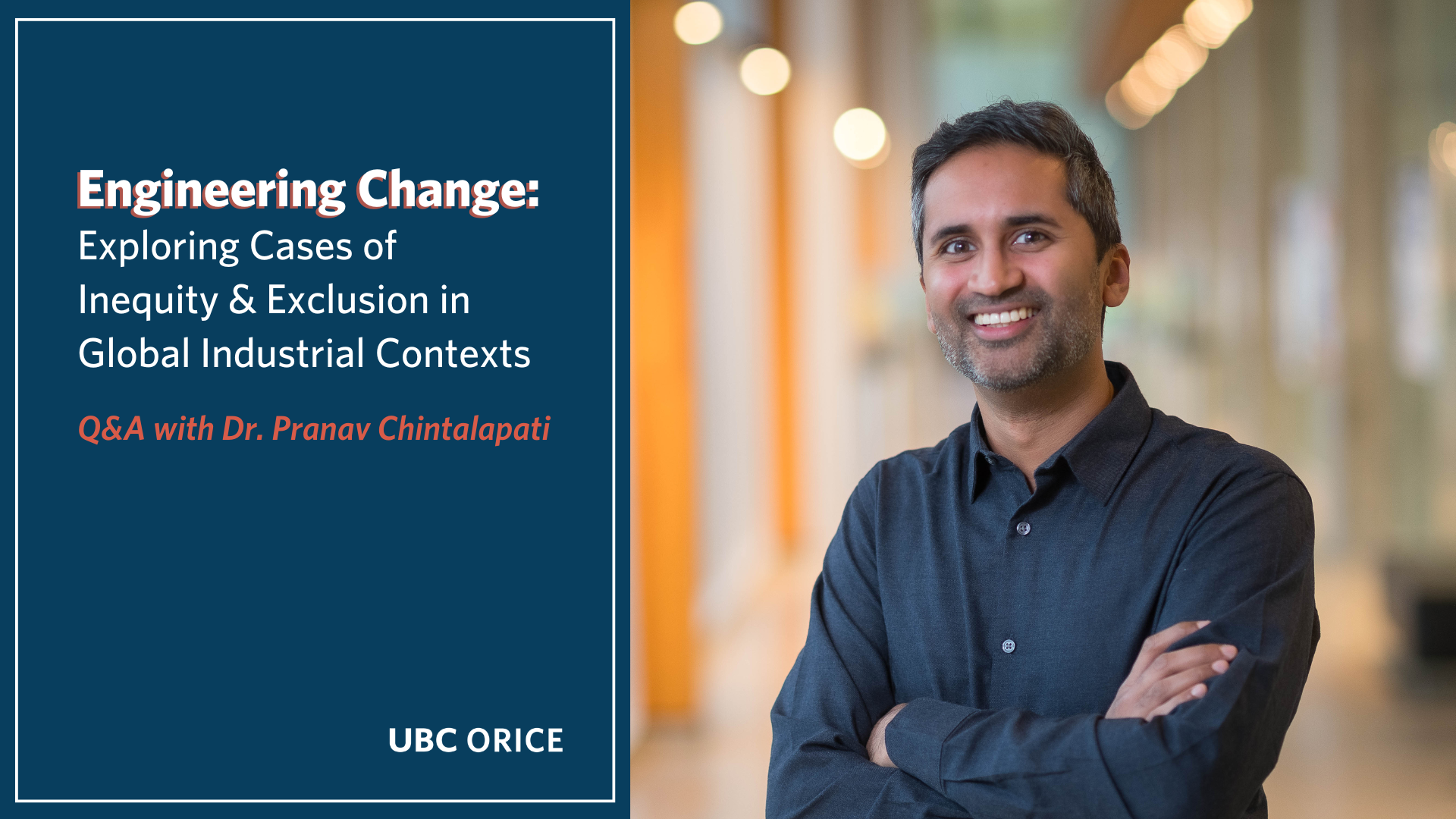

SOWK 440J/571 Global Mental Health is an international course offered by UBC’s School of Social Work in collaboration with ORICE. Based in Nairobi, Kenya and taught by Dr. Mohamed Ibrahim Ph.D., MSW, RN, this course is an immersive experiential learning opportunity that delves into global mental health within a non-western context.
SOWK 440J/571 provides social work students with both theoretical knowledge and practical experiences that challenge them to think about mental health practice. Social workers are crucial in addressing mental health issues by advocating for mental health, developing policies, and providing psychological support to vulnerable communities. Through partnerships with community organizations, future social workers ensure that mental health practices align with the unique needs and cultural contexts of the populations they serve.
In May 2023, SOWK 440J/571 students travelled to Nairobi, Kenya for four weeks and took part in on-site classroom learning which included a four-day joint lecture program with the Kenya Medical Training College and placements with community-based mental health organizations, such as the Green String Network, Kamili Organisation, Refuge Point and Basic Rights-Basic Needs.
We asked Emmy Livsey, a third-year Social Work student, and Amrit Bhangoo, doing her Master’s in Social Work, about their experiences and reflections on participating in the program.
Q: Why did you apply for SOWK 440J/571?
AB: My goal was to discover what international social work is or could be, specifically in the context of global mental health, and to understand what emotional healing through collective initiatives in communities looks like. Furthermore, I wanted to learn more about the effects of mental health and the linkage of socio-economic determinants affecting community members, specifically in Nairobi. I was aiming to understand the role of my positionality while holding myself accountable as a visitor to the global south.
Q: Can you tell us a little bit about the community organization you were placed at for part of the course and what your main takeaways from the placement were?
EL: I was placed at Green String Network (GSN), a non-profit organization that defines itself as a ‘social movement that works with communities to heal social and collective traumas.’ GSN has developed various trauma-informed group programs that promote community healing through education, discussion, embodiment practices, and empowerment. It was refreshing to be in an organization where trauma-informed theory and healing modalities were fully central to everything the organization is about. On top of that, it was exciting that the GSN team we worked with was passionate about the powerful connection between the mind and body, as well as trauma healing with community health and well-being. One of my main takeaways was that collective trauma healing work can be done in a way that is incredibly accessible while remaining impactful. ‘Healing work’ often utilizes listening, empathy, and a sense of belonging, which can be mobilized and directed by community members. This could be seen in GSN group meetings where the volunteer facilitators began and ended meetings with the group chorusing, “our community, our solution.” Moreover, collective healing practices, focusing on group breathing, embodiment, and story-telling practices, have a place in healing that differs from what individual-focused healing offers. I felt very privileged to participate and engage in these practices during my time with GSN.
“ ‘Healing work’ often utilizes listening, empathy, and a sense of belonging, which can be mobilized and directed by community members.”


Learn more about Green String Network, one of our global community partners, by watching this video created in collaboration with SOWK 440J/571 students and the GSN
Q: What did you find the most difficult to deal with throughout the course?
AB: I would say that this course challenged me to step outside of my comfort zone, whether it was speaking up in seminars or engaging in group work. Being more aligned with a reserved disposition, I had to find it within myself to move through the discomfort to make community connections in Kenya and, ultimately, human connections. Although this seemed to be very tough at first, I feel so grateful to have overcome this difficulty because it has shaped how I build rapport and relationships with communities locally and globally.
EL: The most challenging part for me was balancing a busy schedule, which demands a lot of social energy with the desire to rest and be alone. Is it exhausting meeting lots of new people and attending lectures in the week, while trying to check out all that Nairobi has to offer on weekends? Yes. But will you also organize your evening schedule to fit in Zumba, going to the market, a call home, dinner, assignments, and maybe cards? Also yes. There was so much to experience in a short time, that it was difficult to put aside moments to sit and reflect – especially when there was much to reflect on.
Q: How do you think this immersive academic experience will impact your approach as a social worker?
AB: This memorable and impactful immersive academic experience will shape how I approach the profession of social work. I hope to implement a more profound and thoughtful path to working with clients and communities through a cultural lens instead of brief agenda-based screenings. I acknowledge how drastically the North-Western vision of mental health services differs from the Southern one. Moreover, the global north can be more de-centred on political concerns and learn more from the global south, precisely mental health/well-being concerns. Having experienced this incredible academic journey, I will operate more thoughtfully as a social worker to create meaningful community engagement.
“This memorable and impactful immersive academic experience will shape how I approach the profession of social work. I hope to implement a more profound and thoughtful path to working with clients and communities through a cultural lens instead of brief agenda-based screenings.”
EL: This experience has opened to me the importance of experiential learning. I believe the most impactful learning happened through observing others, informal conversations, circle discussions and practices at GSN. There is so much knowledge to collect in seeing how others face challenges, how they may utilize their strengths and frame their weaknesses, and how they narrate their own life stories. I feel I have gained various perspectives on how others learn and heal, different forms of facilitation and connection, as well as trauma-informed approaches. These learnings will translate to my career as a social worker and to my life.

Photo collection from the SOWK 440J/571 course in Nairobi, Kenya

Photo collection from the SOWK 440J/571 course in Nairobi, Kenya

Photo collection from the SOWK 440J/571 course in Nairobi, Kenya

Photo collection from the SOWK 440J/571 course in Nairobi, Kenya
Q: What is your favourite memory from the course?
AB: Although there are many memories to choose from, one that stands out is being part of the outreach team and assisting with distributing sanitary bags to the 9-10 years old elementary students. This experience exposed me to a profound sense of care for the well-being and highlighted the collective humanitarian efforts at play. Students’ insights on what mental health means to them and which steps we, as specialists, have to take, made me reconsider some concepts of the career I plan to pursue. Now, I recognize my ignorance and demystified assumptions about what I thought primary education might look like in Kenya and what education is. The SOWK 440J/571 community placement made it clear to me that the Western academic system is not the only primary institution in the world to deliver quality education around mental health.
“The SOWK 440J/571 community placement made it clear to me that the Western academic system is not the only primary institution in the world to deliver quality education around mental health.”
EL: I think my favourite memory is the time I spent in a circle with a GSN team member and my two classmates. Through our meetings, we laughed, cried, moved, and created together. It was unexpected for me to experience the connection we had, as well as to allow this relationship, within a short-term experience, to blossom in the way it did. It would also be amiss to not mention seeing elephants and experiencing Samburu National Park at sunrise!
—
Interested in ORICE’s international course programs and applying for SOWK 440J/571?
Find out more about our international course programs here. Applications for SOWK 440J/571 for the summer of 2024 open this fall – follow us on social media @ubc_orice or subscribe to our newsletter to stay updated!
Learn more about Green String Network, one of our global community partners mentioned above, by watching this video created in collaboration with our SOWK 440J/571 students and the GSN. Also, check out this video for more about the joint lecture with Kenya Medical Training College.
About the Students


Amrit Bhangoo
Amrit is completing Masters of Social Work degree at UBC.


Emmy Livsey
Emmy is a third-year student at UBC majoring in Social Work.


